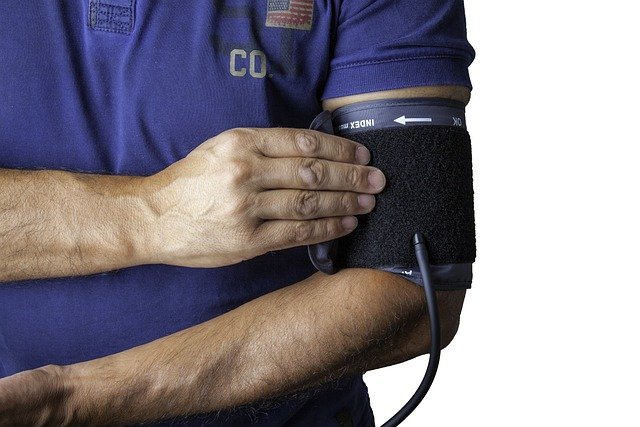How to Become a Medical Assistant in the Netherlands: Start with Training
Medical assistant roles are becoming more accessible in the Netherlands. Whether you live in a large city or a smaller area, you may not need prior experience to begin. Training programs are available to help newcomers enter the field confidently. With growing healthcare demand, this path offers hands-on work and long-term job potential.

What Does a Medical Assistant Do in Healthcare?
Medical assistants in the Netherlands are integral members of the healthcare team, performing a wide range of clinical and administrative tasks. Their responsibilities often include:
-
Assisting doctors and nurses during examinations and procedures
-
Recording patients’ vital signs and medical histories
-
Preparing examination rooms and sterilizing medical equipment
-
Scheduling appointments and managing patient records
-
Performing basic laboratory tests and collecting specimens
-
Educating patients about medications and treatment plans
The role of a medical assistant requires a combination of technical skills, medical knowledge, and excellent communication abilities. They serve as a vital link between patients and healthcare providers, ensuring smooth operations in medical facilities.
What Training Requirements Exist for Medical Assistants in the Netherlands?
In the Netherlands, the path to becoming a medical assistant involves specific training requirements. The Dutch healthcare system places a high value on quality education and practical experience. To become a qualified medical assistant, you typically need to:
-
Complete a secondary education (VMBO, HAVO, or VWO)
-
Enroll in a recognized MBO (Middelbaar Beroepsonderwijs) program specializing in medical assistance
-
Complete a 3-4 year program that combines classroom learning with practical internships
-
Obtain the necessary certifications and registrations required by Dutch healthcare authorities
The MBO program for medical assistants, often referred to as “Doktersassistent” in Dutch, covers a comprehensive curriculum. This includes medical terminology, anatomy and physiology, medical ethics, administrative procedures, and practical clinical skills.
How Do You Choose the Right Training Program?
Selecting the appropriate training program is crucial for your success as a medical assistant in the Netherlands. Here are some factors to consider when choosing a program:
-
Accreditation: Ensure the program is recognized by Dutch educational authorities and healthcare organizations.
-
Curriculum: Look for a comprehensive curriculum that covers both clinical and administrative aspects of the role.
-
Practical Experience: Programs that offer extensive internship opportunities provide valuable hands-on experience.
-
Language of Instruction: Consider whether the program is offered in Dutch or English, depending on your language proficiency.
-
Location and Schedule: Choose a program that fits your geographical preferences and time commitments.
-
Career Support: Programs that offer job placement assistance or have strong industry connections can be beneficial.
It’s advisable to research multiple institutions and compare their offerings before making a decision. Many ROCs (Regional Education Centers) across the Netherlands offer medical assistant training programs.
What Are the Costs and Providers of Medical Assistant Training?
The cost of medical assistant training in the Netherlands can vary depending on the institution and program duration. Here’s an overview of some providers and their estimated costs:
| Provider | Program Duration | Estimated Cost (€) |
|---|---|---|
| ROC van Amsterdam | 3 years | 1,200 - 1,500 per year |
| ROC Mondriaan | 3 years | 1,100 - 1,400 per year |
| Zadkine Rotterdam | 3 years | 1,300 - 1,600 per year |
| ROC Midden Nederland | 3 years | 1,150 - 1,450 per year |
Prices, rates, or cost estimates mentioned in this article are based on the latest available information but may change over time. Independent research is advised before making financial decisions.
It’s important to note that these costs typically cover tuition fees, but additional expenses for books, materials, and possible internship-related costs may apply. Dutch students may be eligible for government financial aid (studiefinanciering) to help cover these costs.
What Career Prospects Exist for Medical Assistants in the Netherlands?
After completing your training, you’ll find that medical assistants are in demand across various healthcare settings in the Netherlands. Career opportunities may include:
-
General practitioner offices (huisartsenpraktijken)
-
Hospitals and clinics
-
Specialist medical practices
-
Community health centers
-
Long-term care facilities
The role of a medical assistant can also serve as a stepping stone to further career advancement in healthcare. Many professionals use this experience to pursue additional education in nursing, specialized medical assistance, or healthcare management.
Becoming a medical assistant in the Netherlands requires dedication, quality training, and a passion for healthcare. By choosing the right program and completing the necessary requirements, you can embark on a fulfilling career that makes a real difference in people’s lives. Remember that continuous learning and staying updated with medical advancements will be key to your success in this dynamic field.
This article is for informational purposes only and should not be considered medical advice. Please consult a qualified healthcare professional for personalized guidance and treatment.




